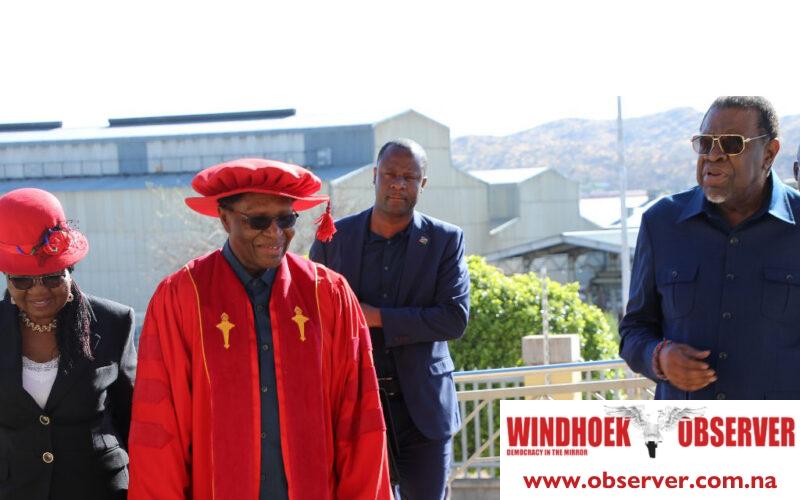Stefanus Nashama
The Swapo Party School celebrated the graduation of its second intake over the weekend in Windhoek, marking a significant milestone since its establishment.
This event followed the first intake graduation, which took place in January 2019.
Speaking at the graduation ceremony, Swapo President Hage Geingob stressed the party’s longstanding commitment to education for its cadres dating back to the country’s liberation struggle.
He pointed to the importance of education, stating, “With the knowledge that the pen is mightier than the sword, Swapo administered a meticulous and well-coordinated program of education in exile. That is why today, you will find that many of our former freedom fighters, including the leadership, are highly educated individuals.”
Geingob noted that some former freedom fighters pursued their studies in exile, while the majority continued their education after Namibia’s independence, and some are still pursuing further studies.
In discussing the history of the Swapo School, Geingob clarified that the concept of the school is not new, as many of the party’s educational programs existed during the exile period.
He stressed that after achieving victory in the struggle for liberation, the process of nation-building required an educated leadership.
According to Geingob, the school’s objectives include providing all cadres with access to available resources, creating a platform for knowledge sharing, and developing the expertise and skills of cadres to contribute to the strengthening of the party’s ideology and the advancement of its political and developmental agenda.
Geingob encouraged the graduates to work tirelessly for the development of the Swapo party in the interest of the Namibian people, emphasizing the integral role of education in societal transformation. He urged them to apply their knowledge to ensure the party delivers on its electoral promises.
Geingob also addressed the challenges of governance and called on members and commentators to offer practical and feasible advice rather than shifting blame and criticism.
He emphasized that governance requires determination, consultations, and hard choices to improve people’s lives.
He further urged the graduates to support the efforts of the Swapo-led government in defending, protecting, and promoting economic emancipation.
Geingob emphasized the role of the school in fostering officials and leaders who will serve the party and Namibia in various public and private sectors.
The school’s rector, Charles Mubita, announced that a total of 69 students graduated in two categories: certificates and diplomas in political science. Among them, 29 received diplomas, while 40 obtained certificates in Political Science.




